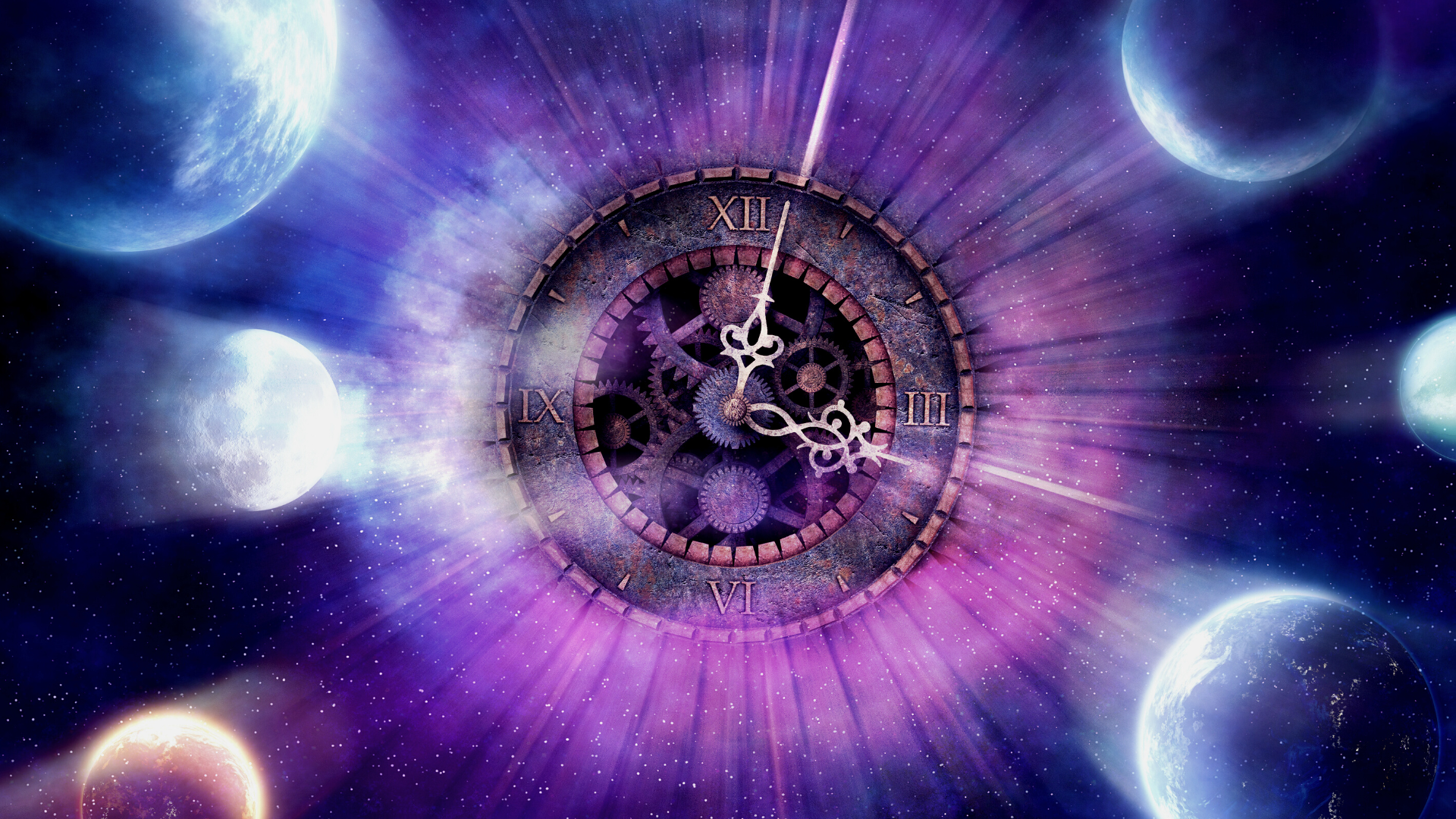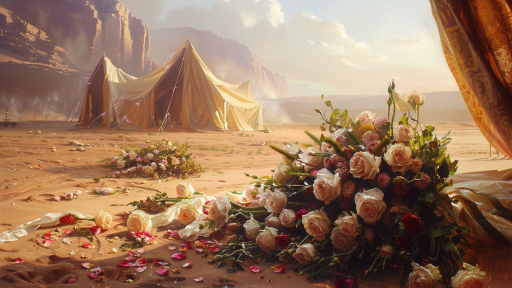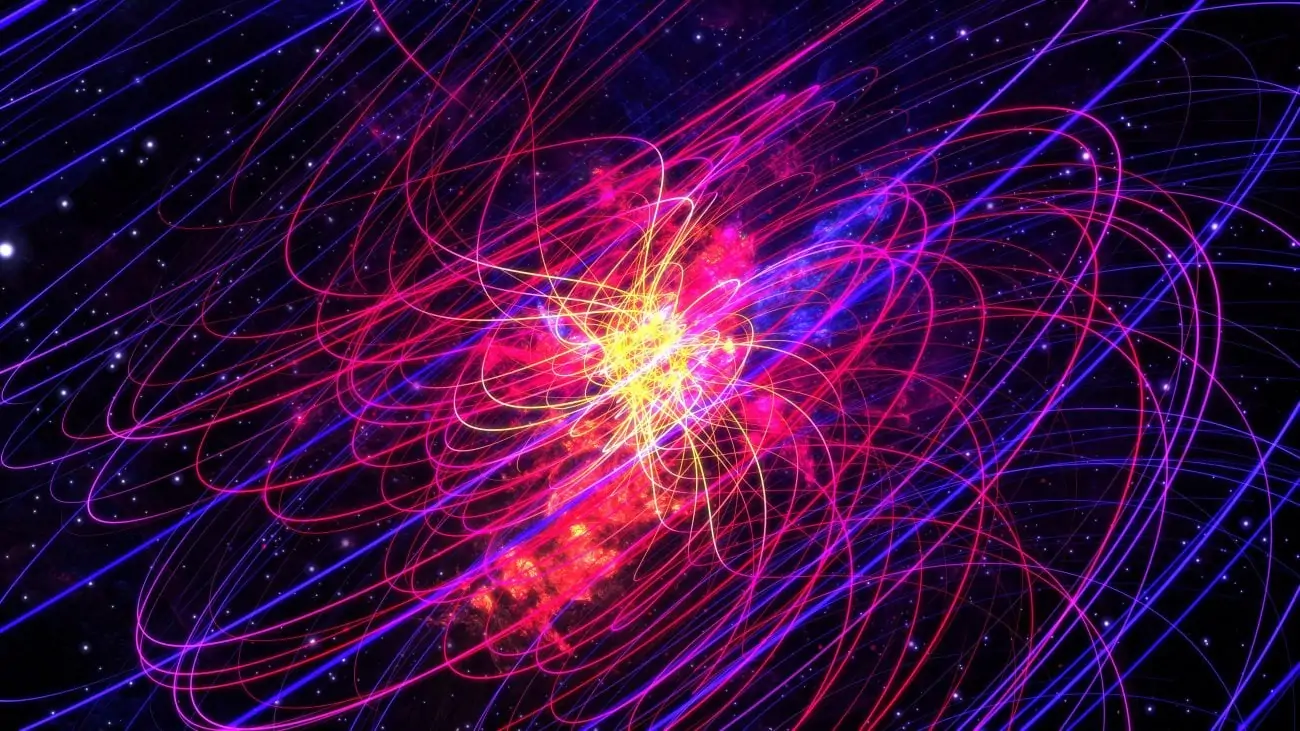In this Bible vs. Quran series, we confront scientific issues in religious scripture, showing how these scriptures fare when put to the test of science and reason. We will cover the following topics, with a new article released every week, God-willing:
- The Age of the Universe
- Adam — First Man or First Prophet?
- Evolution — Science & Scripture
- Ancient Aliens on Earth Before Humanity?
- Was Noah’s Flood Real?
- Geocentricity & the Miracle of Joshua
- The 6 Days of Creation
The Bible’s Description
The Bible opens with Genesis 1. The creation story it gives has a familiar ring: In the beginning God created the Heavens and the Earth. It describes the creation of the universe in six ‘days’, detailing what happened on each of those six days. The full passage is worth a read-through.
There are well-known logical and scientific problems with the passage. For instance, the order of the days is difficult to understand — how were plants growing on Day 3 before the Sun was created on Day 4? Moreover, Genesis 1:26 says Adam was created after the plants and animals, but Genesis 2:7 says he was created before plants. But these kinds of issues, while significant, are not our current focus. Instead, we want to focus on how long it all takes.

The Bible says the Heavens and the Earth were created in six days. For instance, the first day is described thus:
“In the beginning God created the heavens and the earth. Now the earth was formless and empty, darkness was over the surface of the deep, and the Spirit of God was hovering over the waters.
And God said, “Let there be light,” and there was light. God saw that the light was good, and he separated the light from the darkness. God called the light “day,” and the darkness he called “night.” And there was evening, and there was morning—the first day.”
(Genesis 1:1-5)
This is obviously an issue according to modern science, which adds ~ 13.8 billion years to the 144 hours the Bible recounts. If taken at face value, this is a huge flaw in the Biblical creation story, and the ‘Age of the Earth’ controversy has raged for centuries.
Let’s analyse further. The word used for day in Hebrew is ‘yō·wm’ (י֥וֹם), which some argue can also mean an era or eon. Thus, some argue that the Bible is not saying that there are six literal days involved, but six stages, six eons. And in their support, many Christians cite this verse from 2 Peter:
“With the Lord a day is like a thousand years, and a thousand years is like a day.”
2 Peter 3:8
This all sounds much more plausible. Forgetting the details the Bible gives, there may be, in the final analysis, six eras of the universe’s evolution.
Alas, while initially promising, this argument won’t cut the mustard.
Firstly, the context surrounding the above verse reveals that it is talking more about how God is timeless and that human time is meaningless to him. However, even if we grant that it indicates a yowm can be of variable duration, Genesis proves that six 24-hour days are meant by specifying that each day had a ‘morning and evening’:
“And there was evening, and there was morning—the first day.”
Genesis 1:3
It thus becomes very difficult to understand this as referring to anything other than a literal 24-hour day. What other type of day has a literal ‘morning’ and ‘evening’? Thus, all the indications are that the Bible wants us to believe that the universe came to be in 144 hours.
This seems a little, dare I say, unbelievable?

The Quran’s Description
The Quran also describes a six-day creation process in Chapter 41, though its details have literally no similarity to the Genesis creation story, and are much more scientifically validated. Such details will be covered in Part 7 of this Bible vs. Quran series. But let’s just focus on the ‘day/age’ issue for now:
وَلَقَدۡ خَلَقۡنَا السَّمٰوٰتِ وَالۡاَرۡضَ وَمَا بَیۡنَہُمَا فِیۡ سِتَّۃِ اَیَّامٍ ٭ۖ وَّمَا مَسَّنَا مِنۡ لُّغُوۡبٍ
Quran, 50:39
“And verily, We created the heavens and the earth and all that is between them in six ‘days’, and no weariness touched Us.”
It also uses the same essential word in Arabic: ‘yaum,’ or its plural ‘ayyām.’ This word in Arabic is also understood to mean an era, epoch, or stage. Unlike the Bible, the Quran itself proves that the word is used to mean a significant era, without giving a fixed duration.

For instance, in 32:6 it defines a ‘yaum’ as meaning a thousand human years, the time it took for Islam’s spiritual power to disappear from the Earth:
یُدَبِّرُ الۡاَمۡرَ مِنَ السَّمَآءِ اِلَی الۡاَرۡضِ ثُمَّ یَعۡرُجُ اِلَیۡہِ فِیۡ یَوۡمٍ کَانَ مِقۡدَارُہٗۤ اَلۡفَ سَنَۃٍ مِّمَّا تَعُدُّوۡنَ
“He will plan the Divine Ordinance from the heaven unto the earth, then shall it go up to Him in a day the duration of which is a thousand years according to what you reckon.”
Quran 32:6
However, in 70:5 a ‘yaum’ is characterised in a different context as meaning 50,000 human years:
تَعۡرُجُ الۡمَلٰٓئِکَۃُ وَالرُّوۡحُ اِلَیۡہِ فِیۡ یَوۡمٍ کَانَ مِقۡدَارُہٗ خَمۡسِیۡنَ اَلۡفَ سَنَۃٍ
“The angels and the Spirit ascend to Him in a day (yaum) the measure of which is fifty thousand years.”
Quran, 70:5
This is direct Quranic proof that a yaum/day can mean an era of variable duration, depending on the context. If it can mean 1000 years in one context, or 50 times that in another context, then clearly there is no fixed duration. In fact, the Quran also uses it to mean ‘era’ more generally in several places, perhaps most notably in 14:6:
وَلَقَدۡ اَرۡسَلۡنَا مُوۡسٰی بِاٰیٰتِنَاۤ اَنۡ اَخۡرِجۡ قَوۡمَکَ مِنَ الظُّلُمٰتِ اِلَی النُّوۡرِ ۬ۙ وَذَکِّرۡہُمۡ بِاَیّٰٮمِ اللّٰہِ ؕ اِنَّ فِیۡ ذٰلِکَ لَاٰیٰتٍ لِّکُلِّ صَبَّارٍ شَکُوۡرٍ
“And We did send Moses with Our Signs, saying, ‘Bring forth thy people from every kind of darkness into light, and remind them of the days of Allah.’ Surely, therein are Signs for every patient and thankful person.”
Quran, 14:6
In this verse, the Days of Allah is given to mean the era when God’s signs were manifest for Pharoah and the Jewish people respectively.
Clearly then, a day can mean an era. These eras can change in duration. The Medieval Age lasted centuries, while the Age of the Floppy Disk lasted just a few years.
Thus, not only does the Quran prove that day means an eon, it does nothing to jeapordise this interpretation. For instance, unlike the Bible, it never specifies a morning/evening divide within these days.
This helps us to understand that the Quran is telling us the stages of the universe’s development were of an unspecified duration, but, like the days of the week, one had to be completed before the next one came.

Is the Quran Too Vague?
Some may ask why the Quran didn’t tell us the number of years exactly. The answer is that the Quran is a book for all of humanity, for all time — from 1400 years ago to far in the future. If it started giving out specific timings, those timings would seem wrong and potentially absurd for a huge segment of history.
For instance, the idea of the universe lasting over 13 billion years would have seemed ridiculous even a couple of hundred years ago, and thus could have been a barrier to people accepting Islam for many centuries.
In fact, even if it said the Heavens and the Earth were created over 13.6 billion years, this may end up being an incorrect figure — science does revise its interpretations of the data over time. (Though 144 hours seems a little ambitious).
Moreover, the actual figure is irrelevant; God outlines his general process, at a level of specificity that is spiritually relevant to its readers. If giving a specific duration has more downsides than upsides, it would be against Divine Wisdom to provide it.

The Quran — a Guardian of the Bible
By explaining that the Six Days represent six eras, the Quran helps the Bible. It tells the readers that this idea was not completely fabricated. Genesis contained some primordial truth, long lost in the pages of time.
Unlike the Bible, the Quran remains perfectly preserved in its original form. It describes itself as being a Guardian over previous scriptures, protecting them from being dismissed altogether, while correcting their errors:
وَاَنۡزَلۡنَاۤ اِلَیۡکَ الۡکِتٰبَ بِالۡحَقِّ مُصَدِّقًا لِّمَا بَیۡنَ یَدَیۡہِ مِنَ الۡکِتٰبِ وَمُہَیۡمِنًا عَلَیۡہِ فَاحۡکُمۡ بَیۡنَہُمۡ بِمَاۤ اَنۡزَلَ اللّٰہُ وَلَا تَتَّبِعۡ اَہۡوَآءَہُمۡ عَمَّا جَآءَکَ مِنَ الۡحَقِّ
“Now We have revealed unto thee this Book comprising the truth, fulfilling that which was revealed before it of the Book, and as a guardian over it. Judge, therefore, between them by that which Allah has revealed, and follow not their vain desires in preference to the truth which has come to thee.
Quran 5:49
The Quran still stands as that divine book, protected by God — for all people, for all times.











4.5
5